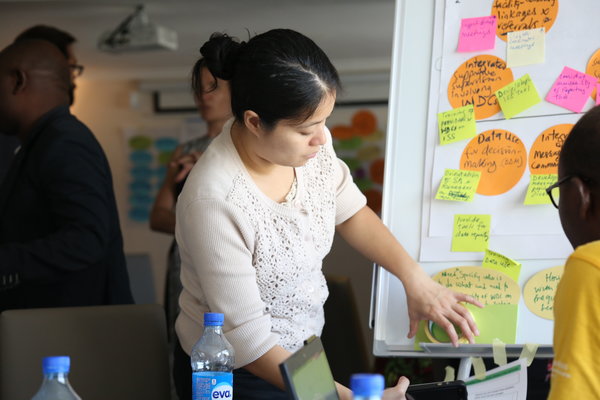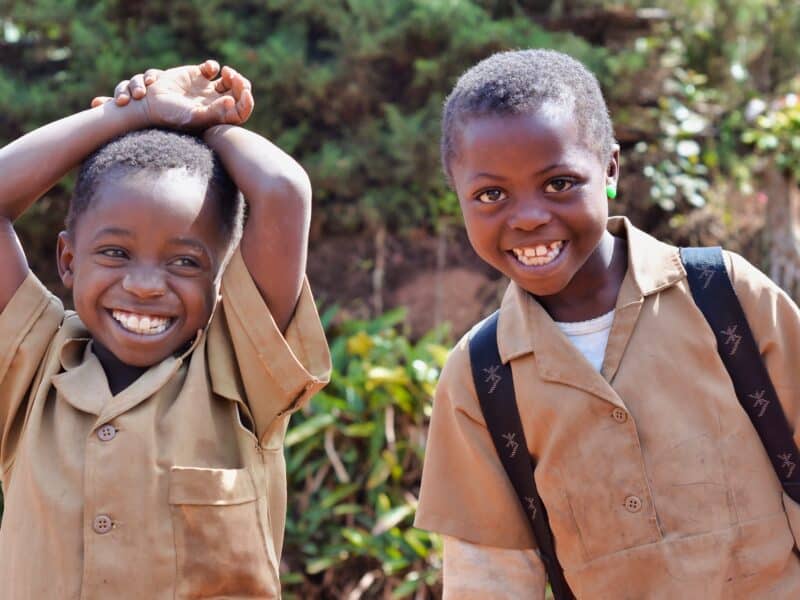In the five months since the Johns Hopkins Center for Communication Programs was awarded the five-year, $300-million Breakthrough ACTION project by the U.S. Agency for International Development, seven countries have already signed on to the social and behavioral change project.
Along with those seven countries – six in Africa and one in South America – Breakthrough ACTION is also working in four Caribbean countries on Zika prevention initiatives.
“We’re moving along quite quickly,” says Anna Helland, the field director for Breakthrough ACTION. “It’s clear that what we do is of interest and is very much needed within health development. To have seven country programs up and running this soon is a testament to the demand for the kind of work we do.”
Breakthrough ACTION is using state-of-the-art, evidence-based tools to encourage people in developing countries to adopt healthy behaviors and change social norms, from using modern contraceptive methods to sleeping under insecticide-treated bed nets to being tested for HIV. Much of the work will harness the power of communication – from mass media campaigns to TV and radio dramas to simple posters in a health clinic – to inspire long-lasting change. The project is also taking advantage of other behavioral science approaches such as behavioral economics and human-centered design to improve programs, and providing technology-enabled solutions when and where it is appropriate.
The program – which builds on many of the successes of the prior five-year, $130.5 million, 34-country project called the Health Communication Capacity Collaborative (HC3) – is expected to be double the size. It is led by CCP, in partnership with Save the Children, ideas42, Think Action and Camber Collective.
So far, Breakthrough ACTION is starting field programs in Sierra Leone, Cote d’Ivoire, Nigeria, Zambia, Swaziland, Rwanda and Guyana.
With scopes of work from USAID Missions, Breakthrough ACTION has begun the country programs with one- to two-week scoping visits that focus on listening and learning and taking a pause prior to diving into design and work planning. Each country’s program will be unique, designed to address the most pressing health needs in their nation.
In Nigeria and Zambia, for example, Breakthrough ACTION expects to create programs that work to change behaviors around a number of health issues, such as malaria, maternal and newborn health and family planning in an integrated way, instead of focusing on just a single health topic at a time. The work will also focus on service providers, finding ways to improve how they interact with their clients and do their jobs.
In other countries, Breakthrough ACTION will focus on a single issue. For example, in Sierra Leone, work will center on being prepared for several emerging disease threats, ranging from Lhasa fever to rabies, and putting into place mechanisms for reporting cases of these diseases to health officials as an early warning system. In Guyana, the focus will be on malaria, especially being tested before being treated and encouraging the proper use of insecticide-treated bed nets among mining and lumber workers. And in Swaziland, the work is focused on the HIV response.
“This is a varied portfolio of work and it plays to the strengths of CCP and our partners on Breakthrough ACTION,” says Elizabeth Serlemitsos, the project’s director. “We have an amazing team and this is an incredible opportunity to test and scale new approaches, increase efficiency and serve more people. We anticipate that these new approaches will facilitate making even greater positive change, improving more lives around the world.”





